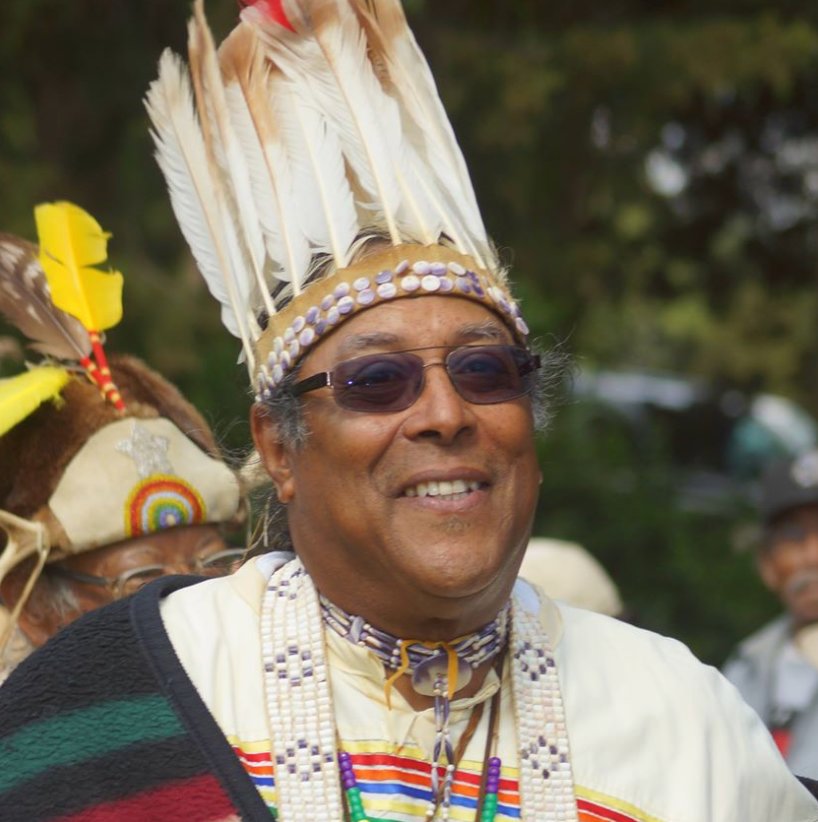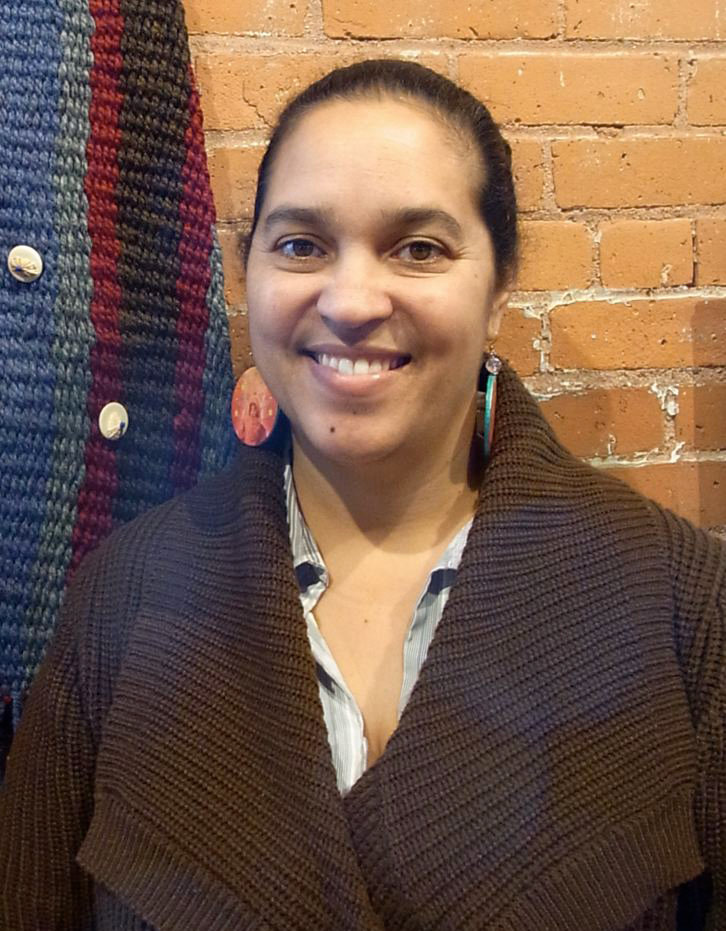Guardians of their story
Sagamore William Guy and Lorén Spears are two local indigenous leaders who have devoted their lives to sharing and preserving their cultural identity
Sagamore William Guy of the Pokanoket Nation is a little busy these days. "Boy, am I tired," laughed the Sagamore (a title, meaning chief of chiefs), who is also known as Po Wauipi Neimpaug (Winds of …
This item is available in full to subscribers.
Please log in to continue |
Register to post eventsIf you'd like to post an event to our calendar, you can create a free account by clicking here. Note that free accounts do not have access to our subscriber-only content. |
Day pass subscribers
Are you a day pass subscriber who needs to log in? Click here to continue.
Guardians of their story
Sagamore William Guy and Lorén Spears are two local indigenous leaders who have devoted their lives to sharing and preserving their cultural identity
Sagamore William Guy of the Pokanoket Nation is a little busy these days. "Boy, am I tired," laughed the Sagamore (a title, meaning chief of chiefs), who is also known as Po Wauipi Neimpaug (Winds of Thunder). He's just spent the morning babysitting his great-grandchild at his home in Barrington, and after a midday break, (relieved for a couple of hours by daughter Tracey Brown, herself the Sachem of the tribe) he'll be back on duty for the rest of the day. In the interim, he fields calls from people requesting interviews and arranging virtual educational programs and speaking engagements on this, the 400th anniversary year of the Pilgrims' arrival in Plymouth.
Even when he's not caring for his grandchild, his focus remains on family — his larger family of the Pokanoket Nation and their outsized significance in the history of the East Bay, which sits on part of Sowams, the vast ancestral lands of the Pokanoket, the largest Indian nation in colonial New England, which at one time occupied much of Southern New England.
Ancestors of the Pokanoket are thought to have occupied this region for as many as 12,000 years — and the Sagamore can trace his ancestry back for more than 400 of them, to the Pokanoket Massasoit Ousamequin (Massasoit is a title; Ousamequin was his name.)
It was Ousamequin who, seeing the struggles the Pilgrims were having in the new land, approached them and offered assistance. "He didn't do that right away," said Mr. Guy. "He hung back at watched for a couple of months. And when he offered his help, it was against the wishes of the other sagamores and sachems."
The treaty that arose from that initial meeting lasted for more than 50 years, until Ousamequin’s second son Metacomet, Mr. Guy's 9th generation great-grandfather, (known to the English as King Philip) was killed near Mt. Hope in Bristol.
"This 400th anniversary is such a good opportunity to tell the true story of the Pokanokets," said Mr. Guy. "This is where it all started; we have such a rich history here."
Identity denied
Once the Indian wars ended following the assassination of Metacomet, the colonial government outlawed the name Pokanoket, and henceforth referred to Mr. Guy's people as Wampanoag. "Identifying yourself as Pokanoket in colonial New England could get you executed," said Mr. Guy.
Even as Pokanokets took their place in the new United States — Mr. Guy's great-grandfather Simeom Simon was George Washington's hand-picked bodyguard and appears alongside the 1st president on the relief of the bicentennial quarter — Pokanokets were denied their identity.
He worked long and hard to correct the official record with state and federal authorities, a goal he finally accomplished in 2015.
For Mr. Guy, access to the ancestral lands of the Pokanoket has long been a key goal. In 2017 he staged a camp-in on the Bristol property that formerly housed Brown University's Haffenreffer Museum of Anthropology, which brought attention to the protracted negotiations between the Pokanoket and Brown.
"The land up there, that's our spiritual high ground," Mr. Guy said. "We never ceded anything, and we did not feel we should have to ask permission, pay, or post an insurance rider to go there and hold a ceremony."
Sharing their story
In normal times Mr. Guy and other Pokanokets bring their story and culture to schools, camps, libraries, and lecture halls in the area; these days they are mostly educating through virtual platforms, including an event this past Monday titled “Indigenous in Rhode Island: Reflections on Courage and Community” at Roger Williams University.
Mr. Guy was joined by Lorén Spears, a Narragansett, and Executive Director of Tomaquag Museum. An educator and artist who shares her cultural knowledge with the public through museum programs, Ms. Spears is also an author of curriculum, poetry, and narratives for publications such as Dawnland Voices: An Anthology of Indigenous Writing of New England; Through Our Eyes: An Indigenous View of Mashapaug Pond; and From Slaves to Soldiers: The 1st Rhode Island Regiment in the American Revolution. Recently, she co-edited a new edition of A Key into the Language of America by Roger Williams.
The RWU program was developed by a group of faculty and students dedicated to formalizing indigenous programming at the University. They are hoping that COVID regulations will permit them to have some in-person events at a planned spring of 2021 multi-day conference in recognition of the 400th anniversary of the signing of the treaty between Ousamequin and the Pilgrims.
Anthropology Professor Jeremy Campbell says the event is in the planning stages now, but they are hoping to engage a variety of big thinkers and activists to highlight the singular importance of Bristol in the history of colonial America and indigenous relations. "We are looking into who has historically told the stories of indigenous people; by whom and for whom," he said. His students recently put out a booklet titled Pokanoket: First People of the East Bay; and as part of RWU's ongoing programming, Professor Campbell delivered a talk in September, called "Decolonizing Sowams: Resisting the Erasure of Indigenous Lives in the East Bay of Rhode Island" which can be viewed on YouTube: https://youtu.be/KInC667vNTI.
Growing up in Exeter and Hopkinton as the granddaughter of a chief, with a family that ran a restaurant featuring native foods, Lorén Spears always had a very strong sense of her identity as a Narragansett. So it was a shock for her to open a history textbook in the 5th grade, to be informed that technically, she did not exist.
"If you understand conquest and detribalization, you know that, according to Rhode Island Law, we did not exist on paper," she said. "It took us 101 years to get federal recognition and acknowledgment."
"History is written by the victors — the story of indigenous people was eradicated," Ms. Spears said. "We call that pencil genocide, when you are erased by documented history."
The Tomaquag Museum, of which Ms. Spears is Executive Director, is the only Rhode Island museum dedicated to indigenous culture. Once all volunteer run, there's now a staff of 7 and plans are in progress for further facility development. "Even in this COVID year, there has been lots of virtual public programming, from native artist interviews and other classes that focus on the intersection of art and culture," she said.
Ms. Spears has filled lots of tribal roles over the years and beyond the impact of COVID on programming, she is deeply concerned impact on the health and welfare of the Narragansett. "Everyone is worried about COVID," she said, "and at higher risk due to historic inequities and disproportionate health concerns." The census is another important focus in 2020, given the history of the government writing indigenous people out of visibility. Social injustice issues impact the native community disproportionately. "Rates of violence against indigenous people are staggering," said Ms. Spears.
Balancing contemporary social and wellness concerns with political activism, indigenous empowerment programs and cultural outreach is a tremendous amount of work, but it's shared work. "I run one organization but we work collaboratively with Narragansetts and other tribal governments, the RI Indian council; there are lots of entities sharing cultural knowledge — not to mention individual families passing on their traditions, with each extended family sharing knowledge through both the public and within the native community."
For more information on the Tomaquag Museum, visit www.tomaquagmuseum.org; for information on historically significant Pokanoket sites in the East Bay, visit www.sowamsheritagearea.org.









